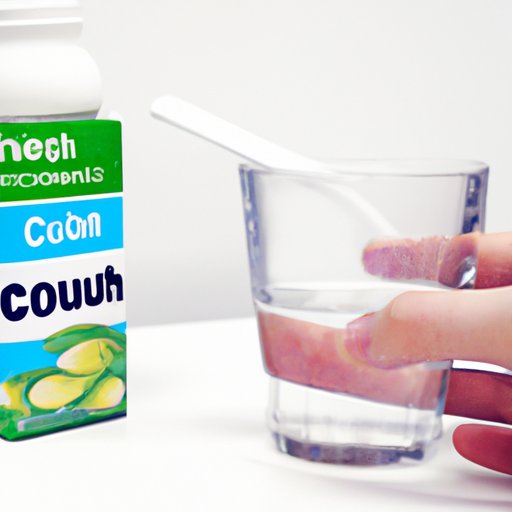
Introduction
Wet cough is defined as a type of cough that produces phlegm or mucus. It is usually caused by infections in the respiratory tract that generate excessive amounts of mucus in the lungs. The importance of addressing a wet cough cannot be overstated since it can seriously impair breathing, leading to cough fatigue, chest pain, and difficulty sleeping. In this article, we will explore effective ways to manage wet coughs, including home remedies, medicine, professional advice, lifestyle changes, and prevention.
Home Remedies
When it comes to treating a wet cough, there are many simple home remedies that can help alleviate symptoms. Gargling with salt water, for instance, can help soothe the throat and loosen mucus, which can then be expelled by coughing. Drinking warm liquids such as tea, soup, or hot water with honey can also help relieve symptoms by providing warmth and hydration while loosening phlegm. Using a humidifier can help moisten the air, making it easier to breathe and cough up mucus. Additionally, consuming natural ingredients like honey, ginger, and turmeric can help fight infection and reduce inflammation, which can worsen wet coughing.
Over the Counter Medicine
If home remedies are not sufficiently effective in managing wet coughs, over-the-counter medications like cough suppressants and expectorants can be useful. Cough suppressants are used to stop or reduce coughing, whereas expectorants are used to loosen mucus and facilitate coughing it up. It is important to properly use these medications, following the dosage instructions provided on the label. Precautions should also be considered when using these medications, especially if the patient has any underlying medical condition or is taking other medications.
Professional Medical Advice
If wet coughs persist, professional medical advice should be sought as soon as possible. A doctor or cough specialist can provide a proper diagnosis and prescribe appropriate medical treatments, such as antibiotics or bronchodilators. They can also recommend lifestyle changes, such as quitting smoking, drinking more water, and avoiding irritants like dust or pollution. These experts can also conduct tests to determine the root cause of the wet cough, such as allergies or asthma, and provide customized treatments accordingly.
Lifestyle Changes
The best way to treat a wet cough is to avoid potential triggers by making certain lifestyle changes. Quitting smoking is the most obvious and can significantly reduce cough symptoms. Drinking more water can also help clear mucus from the lungs and improve overall respiratory health. Avoiding irritants like dust, pollution or allergy triggers can also have a positive impact on coughing. Even taking simple steps like washing hands more frequently, getting enough sleep, exercising regularly, and avoiding stressors can improve the immune system and reduce the likelihood of developing a wet cough.
Prevention
While it is impossible to completely prevent a wet cough, certain preventive measures can be taken to reduce the likelihood of developing one. For instance, boosting the immune system by eating a healthy diet, getting enough sleep, and exercising regularly can make the body more resistant to infectious agents. Avoiding stressors is also crucial as it can lower immune function, making it more likely to get sick. For those who are prone to respiratory infections, washing their hands regularly and avoiding being in close proximity to people who are sick can help reduce the likelihood of developing a wet cough.
Conclusion
Wet coughs can be both painful and exhausting. While there is no single cure for wet coughs, there are several effective ways to manage and even prevent it. Implementing the suggestions outlined above, such as home remedies, medicine, professional advice, lifestyle changes, and prevention, can help to reduce symptoms and improve overall respiratory health. By taking a proactive approach to managing wet coughs, individuals can breathe more freely and live more comfortably.




